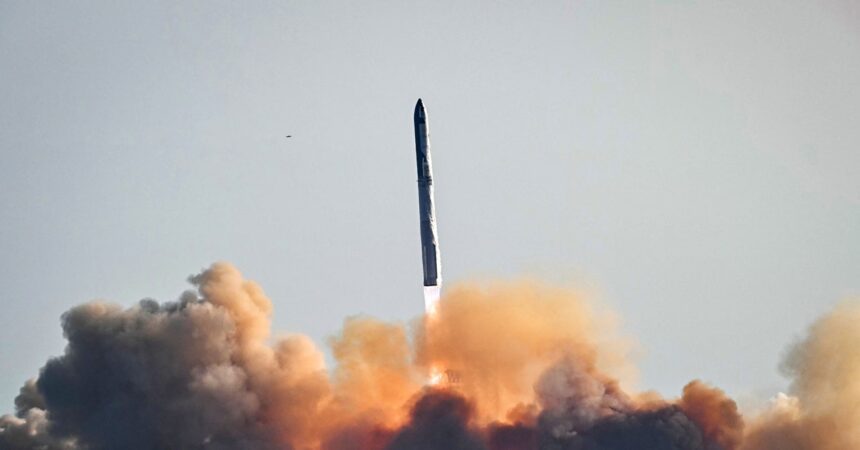Title: Elon Musk’s Shift on Space Policy: What It Means for NASA’s Artemis Program
Introduction
Elon Musk, the founder of SpaceX and a figure synonymous with innovation, has long been an outspoken advocate for humanity’s expansion into space. While his focus has largely been on Mars, recent comments signal a significant shift regarding his views on NASA’s Artemis program, aimed at returning humans to the Moon. Musk’s transition from a tacit supporter to a vocal critic raises intriguing questions about the future of Artemis and its implications for U.S. space policy as a whole.
Musk’s Relationship with NASA and Artemis
Historically, Musk has maintained a supportive stance towards NASA despite preferring Mars as a primary destination for human exploration. This support is understandable—SpaceX holds numerous lucrative contracts with NASA, including the development of a Human Landing System vital to the Artemis program and logistics support for the Lunar Gateway, a critical component for lunar exploration.
However, internal frustrations appear to have catalyzed a change in Musk’s public rhetoric. Musk has reportedly expressed dissatisfaction with NASA’s pace and operational strategies, critiquing the Artemis program for being overly reliant on contracts that prioritize job creation over efficient outcomes. According to Musk, a “jobs-maximizing program” is not conducive to propulsion into the future of space exploration.
Recent Public Comments
On Christmas Day, Musk took to X (formerly Twitter) and labeled the Artemis architecture as “extremely inefficient,” arguing it requires a fundamental overhaul. He further asserted that “the moon is a distraction,” emphasizing his preference to prioritize Mars. These comments starkly challenge NASA’s initiative to conduct multiple lunar missions and establish a sustainable human presence on the Moon by the end of this decade.
The Implications of Musk’s Comments
Musk’s assertions are particularly poignant given his increased influence on U.S. space policy. Having played a role in the Trump administration’s direction and potentially in the upcoming leadership of NASA, Musk’s opinions can sway viewpoints both within the agency and among influential policymakers.
Despite Musk’s criticisms, analysts suggest that the Artemis program is unlikely to dissolve. The program, launched under the Trump administration, was designed to reassert the United States’ dominance in space exploration. It aims not only to establish a foothold on the Moon but also to serve as a precursor for future Mars missions.
In light of Musk’s comments, a few key interpretations emerge:
-
Advocacy for Change: Musk’s public remarks may reflect a broader call for reform within NASA, pushing for a more streamlined, results-oriented approach to space missions.
-
Competitive Pressure: The Artemis program is not just a national aspiration; it’s an essential part of the United States’ strategy to maintain competitiveness against China in lunar exploration. Musk’s intervention could be seen as an attempt to realign focus amidst increasing geopolitical competition.
- Potential Reassessment of Goals: While it’s unlikely that the Artemis program will be scrapped, Musk’s comments suggest that a reassessment of its objectives and methodologies could be on the horizon, prompting new evaluations of how best to utilize resources and contractors.
Conclusion
Elon Musk’s recent criticisms of NASA’s Artemis program represent a pivotal moment in U.S. space policy discourse. As Musk harnesses his influential position to voice dissatisfaction with existing plans, it opens up avenues for debate about the efficiency and direction of lunar missions. However, it’s essential to recognize that such a shift in rhetoric doesn’t preclude the continuation of Artemis, but rather could point to an evolution in approach as the U.S. endeavors to cement its leadership in space exploration amidst fierce global competition. The coming months will likely be shaping up to be a defining period for the future of Artemis and its potential path toward Mars.
As we look ahead, the collaboration of commercial entities, like SpaceX, with established agencies such as NASA, will be critical in overcoming challenges and achieving sustainable human presence beyond Earth, whether that’s on the Moon or on Mars.










